Workplace safety: How MOM inspectors help firms to fix the gaps
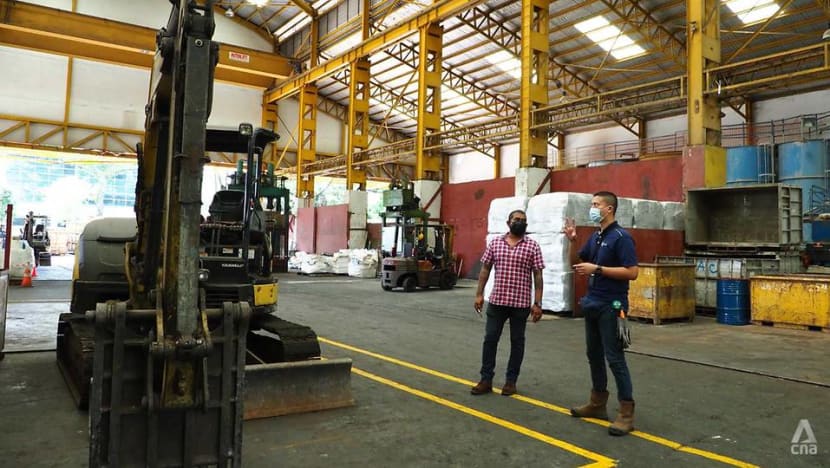
A workplace safety inspection at Esun International on Jun 4, 2021. (Photo: Chew Hui Min)
SINGAPORE: The piles of waste scrap metal and bales stacked up precariously that were seen at Esun International’s factory about six week ago were conspicuously missing when safety inspectors visited again on Friday (Jun 4).
This was their third visit to the premises at Tractor Road, including a surprise inspection on Apr 19 when a stop-work order was issued to the waste metal recycling company. The media, including CNA, accompanied Ministry of Manpower (MOM) inspectors on this inspection.
The lapses spotted then included poor maintenance of machinery such as forklifts, poor traffic management and unsafe stacking of materials. These are common issues found at workplaces with warehousing and heavy machinery, said MOM.
READ: MOM issues stop-work order to waste metal recycling firm, to focus on safety in manufacturing sector
The stop-work order was lifted on Jun 4, following a final inspection by MOM inspectors.
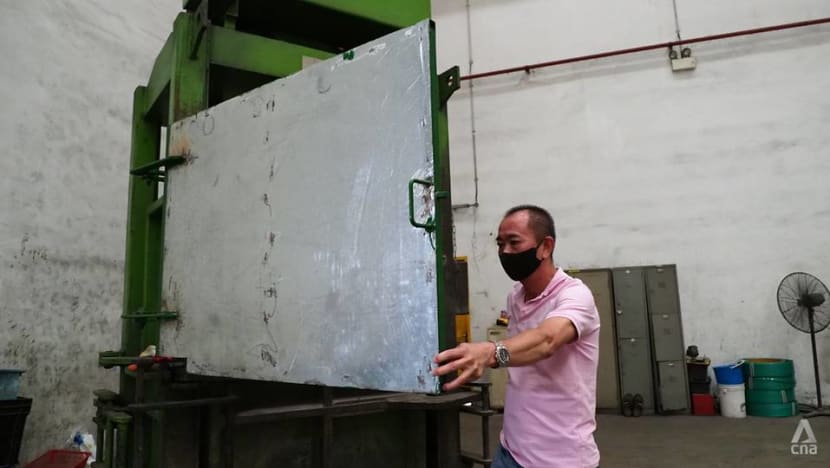
Esun International president Seah Hock Thiam, 55, told CNA, who accompanied the MOM inspectors, that the firm has complied with every request for rectification. These included guardrails at high platforms, an emergency eyewash station, as well as new warning signs and freshly painted traffic management lanes.
Doors have been installed for all the baling machines, used for compressing waste material, which would stop workers’ limbs from accidentally being caught in them.
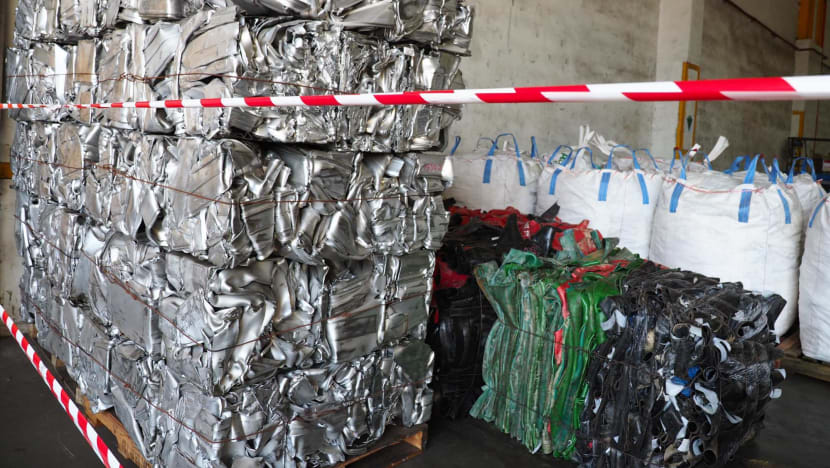
The factory premises looked visibly neater and more spacious, with the materials stacked in orderly rows.
"HOW DO I FACE MY CUSTOMERS?"
But at the same time, Mr Seah emphasised that the company had been operating for more than 30 years without any fatalities or serious accidents.
The safety features cost the company S$60,000 to S$70,000, but the stop-work order caused greater losses, he said in an interview in Mandarin.
“We couldn’t work, we couldn’t fulfil our contracts. How do I face my customers?” he said.
“During the pandemic, the price of everything has gone up … then we had to stop work … don’t (my workers) need to eat?”
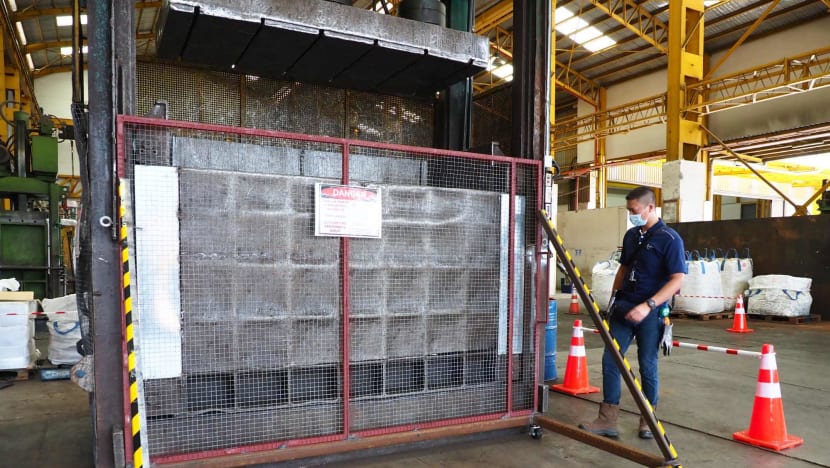
He appealed to the authorities to give companies a chance to improve before imposing stop-work orders, emphasising that he has taken care of his workers’ welfare - providing them with lunch and medical coverage.
“Trust is important and everyone knew our company name ... The company’s reputation has been damaged,” he lamented.
MOM said that the stop-work order had to be imposed as the lapses identified on Apr 19 could have led to fatalities or serious accidents. The stop-work order was issued so that the company could properly rectify the lapses.
MOM inspector Khairil Anuar Malek worked with the company to rectify the lapses, debriefing them on the areas that needed to be improved and making additional visits to the company to monitor their progress.
The company also needs to provide documentation to show that they are working to rectify safety lapses.
During a second inspection on May 25, MOM inspectors observed that some high-risk issues still had not been dealt with.
These included lack of barricades for open sides at platforms, incomplete repair and maintenance of forklifts, and lack of fencing for moving parts of machinery. It removed the order when these were corrected.
"We seek employers’ cooperation and understanding, that work activities cannot continue until the safety issues have been adequately rectified," said the ministry.
WORKERS, COMPANIES "UNAWARE"
The issue of workplace safety has been in the spotlight in recent months. In the first quarter of 2021, the manufacturing sector saw 38 major injuries and three fatalities. The three died in an explosion caused by the combustion of fine dust.
READ: Tuas explosion: 3 workers die from injuries, 5 in critical condition
Overall, there were 12 workplace deaths in the first quarter, not including traffic accidents. In the first quarter of 2020, there were also 12 fatal accidents at workplaces; in 2019 1Q, there were nine.
MOM is currently conducting 400 inspections in May and June under Operation Ibis, targeting high-risk sectors such as manufacturing and construction, with a focus on machinery safety.
So far, the ministry has uncovered over 440 contraventions leading to composition fines
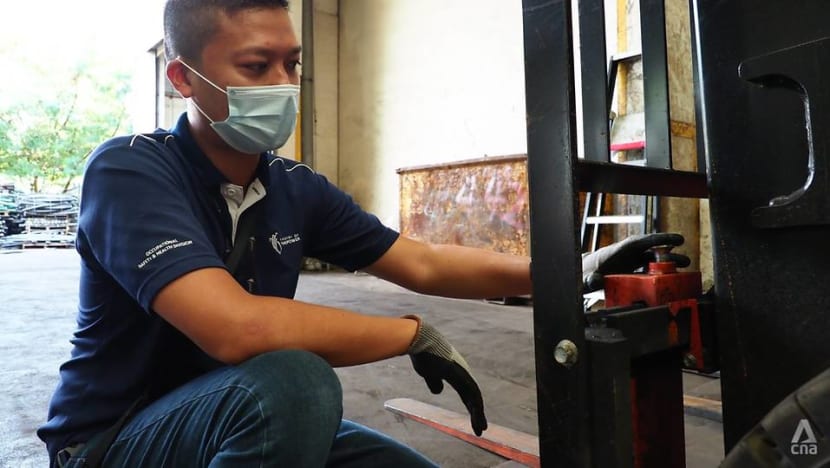
Mr Khairil, 35, said that he has seen many cases of “poor implementation of workplace safety and health management system in companies”.
Giving an example of the serious injuries that can result from lapses, he said: “There was a case that I investigated involving a worker, who was erecting a scaffold in a cargo tank of a vessel.
“As he did not anchor his safety harness correctly, the worker fell from a height of about 6m. The worker survived the fall but suffered severe injuries to his spine.”
He said that the main challenge he faces is that some companies may not be as familiar with the Workplace Safety and Health (WSH) Act and subsidiary legislation, compared to those in the construction industry.
“They may not welcome the presence of WSH inspectors. This unfamiliarity may contribute to resistance to improve their WSH safety management system and hence require more guidance and convincing,” he said.
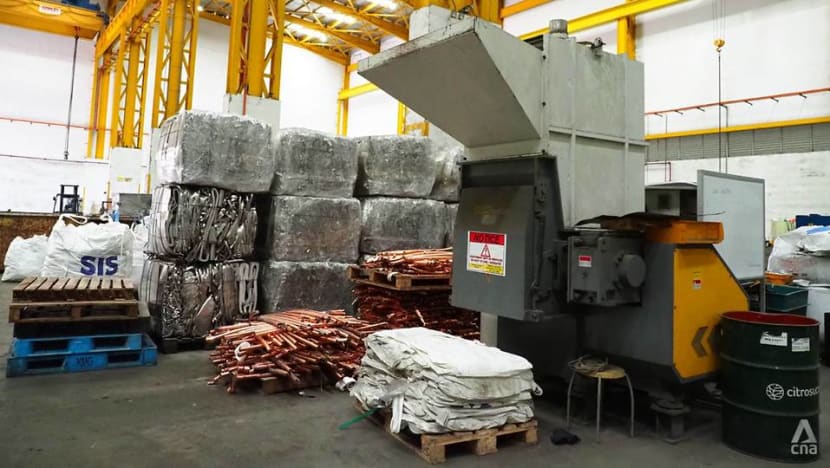
Workers too may not be aware that the actions or shortcuts that they take may be unsafe, he said.
“It is often difficult for workers to initiate a paradigm shift in their safety mindset, but consistent education and reminders can have a significant impact in encouraging workers to have increased awareness of safety,” he said.












